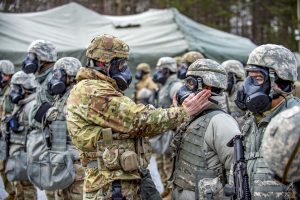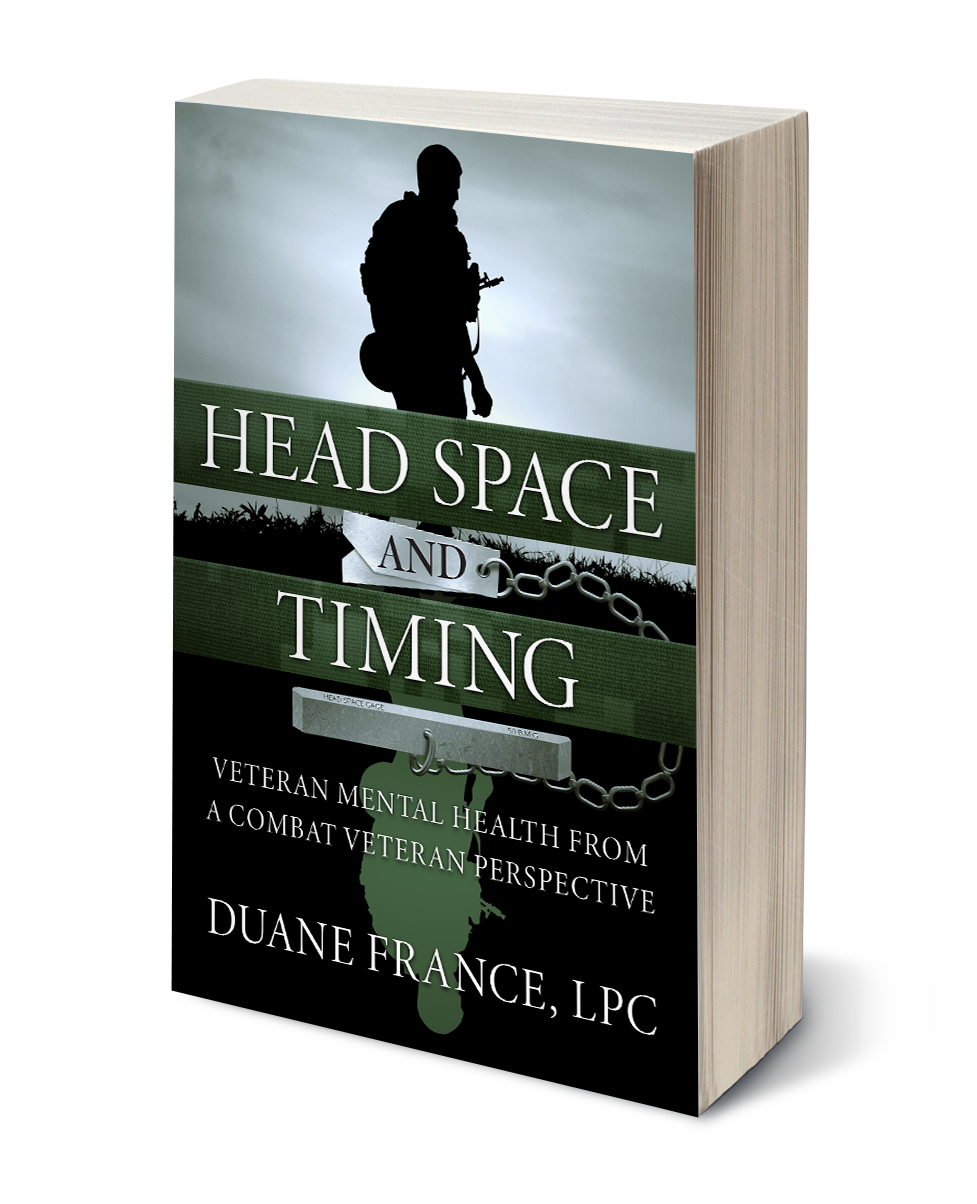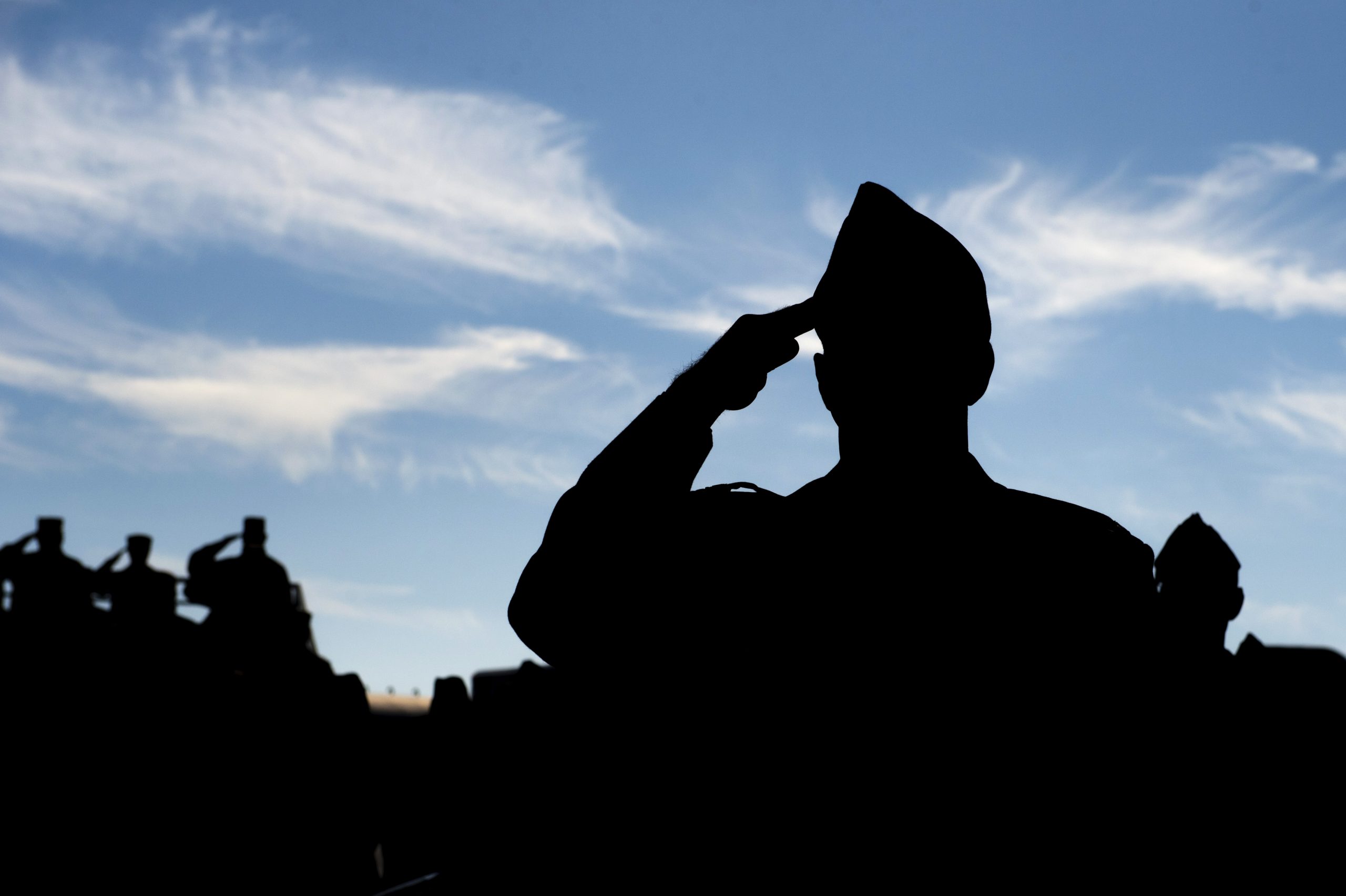
The Headquarters Company first sergeant for the 200th Military Police Command inspects his troops’ protective masks in formation during a field training exercise at Fort Meade, Maryland, Jan. 12, 2019. (U.S. Army Reserve photo by Master Sgt. Michel Sauret)
I think of a hero as someone who understands the degree of responsibility that comes with his freedom. -Bob Dylan
I had been in the Army for less than a day when I was given responsibility over something. A book, the basic information that a trainee needs to navigate initial training. It was my responsibility to keep, to maintain, to read. It was my responsibility to produce, whenever asked, usually not fast enough. The military is big on responsibility: for self, for equipment, eventually for others.
The responsibility didn’t end for twenty-two years; I was given responsibility over more and more, sometimes in small ways, sometimes in extremely large ways. This is one of the things that makes veterans a valued employee, an ingrained sense of responsibility. A tendency to take on a role when others may not, to own up to mistakes when they are made. It’s the trait of responsibility that makes a collective culture like the military work well. I know what I need to do, and take responsibility for it, and I know that others, for the most part, will fulfill their obligations with responsibility as well.
Like many things in the military, though, the burden of responsibility can be heavy, if taken too far.
Accept Responsibility for Your Actions
This is a hallmark of military life. Take responsibility when you screw up, because others will certainly make sure you do so. Take responsibility for what you say, what you do, how you act. The problem comes from assuming that you have more responsibility for something than you actually do. A veteran, for example, may think that they have a responsibility to do something when they actually don’t. A responsibility to “make things right” or fix things that are wrong. We may have a responsibility to do that for those close to us, family a friends. But not for everyone, everywhere, at all times. Assuming more responsibility for something than we actually have can lead to frustration.
Another problem with personal responsibility is when we attribute responsibility to our actions in the past, assuming that there is something we should have done. This is a key factor of survivor’s guilt: we should have done something different. We should have been there when we lost a buddy. I should have acted faster, or made a different decision. We should have told someone something, or we should have kept our mouth shut, or a thousand different variations on that theme. When we do that, we take on one hundred percent of the responsibility: it was all and entirely our fault. Was it, though? Do we often take on burdens that are not ours to bear?
Accepting Responsibility: A Case Study
In 2011, I was part of a team that was responsible for evaluating units of the Afghan National Army (ANA). We were responsible for making sure that they had accomplished all of their training and were able to conduct basic unit tasks. Our team typically spent two or three days with them at the end of their training, practicing different drills such as responding to an improvised explosive device or evacuating a casualty. We had no impact on their training, and had very little interaction with the soldiers in the units themselves.
Later, I heard about a green-on-blue attack. That’s when a member from an allied partner attacks another allied partner. In Afghanistan in particular, attacks on U.S. military forces are conducted by members of the Afghan military or police force. The green-on-blue attack I heard about was after my time evaluating ANA forces; in this attack, a platoon of ANA soldiers opened fire on an American element, resulting in the death of two American soldiers.
Accepting Responsibility for the Actions of Others
My immediate thought: “Was that one of the units we evaluated? Did I miss something?” I very quickly arrived at the thought that I was in part responsible for the deaths of two of my fellow service members. Logically, I know that this is highly unlikely; I had no idea of how long that unit had been in the field, whether or not it was one of the ten or twelve that we evaluated. If it were one of the units we evaluated, there was no possible way that I could have predicted that this would happen over a year after I left the country. The bottom line is, I was burdening myself with responsibility that was not mine to bear.
This is how reason and emotion can be opposed, and cause discomfort. Reason tells us that we don’t have responsibility for situations like this, but emotion tells us that we should. Which is correct? Do I bear a measure of responsibility? Highly unlikely, but if we measured out responsibility in percentages, if I did, it would be a fraction of a percent of the responsibility. I assumed responsibility for something that was someone else’s responsibility entirely.
The Responsibility Paradox
This is another paradox that service members experience: As service members, we are very big on personal responsibility. We often take a significant burden of responsibility on ourselves, but don’t apply that same burden of responsibility to others. Our need to be accountable and responsible results in us accepting responsibility that rightly belongs to someone else.
In the military, we are always told to hold ourselves to a higher standard than that other squad, that other platoon, that other company. To hold ourselves to that higher standard, we have to take more responsibility, often some that isn’t ours. We set the bar so high for ourselves that it’s impossible to reach, then beat the crap out of ourselves when we don’t reach the bar. It’s important to hold on to a sense of responsibility, that we can be counted on to do what we say we’re going to do and be where we say we’re going to be.
If we carry too much of the burden of responsibility, however, especially of that burden is not ours to begin with, then that burden can start to weigh heavy on us. Learning how to balance that which we do have responsibility for, and allow others to carry the burden of their own responsibility, can help us succeed in post-military life.
Do you want to help offset some of the costs of the Head Space and Timing Blog and Podcast? Want to show your appreciation and support? You can put some paper in the tip jar by going hereor clicking the button below
 Want to learn more about veteran mental health? The first HS&T Book has recently been released in paperback. Click on the image to the left or this link to purchase the book. See what people are saying about it: This compilation of Duane’s work is key and essential to anyone working with Soldiers and Veterans. Duane provides a senior NCO’s perspective with unmeasurable experience and knowledge on top of his natural gift for seeing numerous levels of humanality and the challenges faced by those who have served our country. I highly recommend it! – A.C.
Want to learn more about veteran mental health? The first HS&T Book has recently been released in paperback. Click on the image to the left or this link to purchase the book. See what people are saying about it: This compilation of Duane’s work is key and essential to anyone working with Soldiers and Veterans. Duane provides a senior NCO’s perspective with unmeasurable experience and knowledge on top of his natural gift for seeing numerous levels of humanality and the challenges faced by those who have served our country. I highly recommend it! – A.C.
